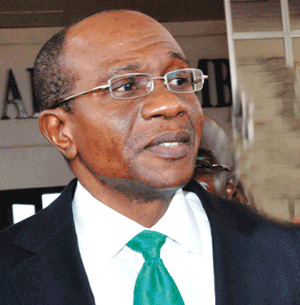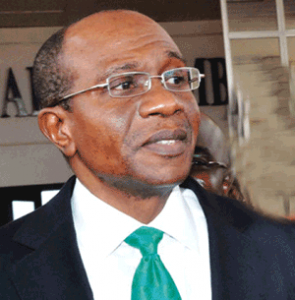The Central Bank of Nigeria ( CBN ) left its Monetary Policy Rate (MPR) also called interest rate on hold at 13 percent in line with the expectation of analysts.
At the conclusion of its 99th Monetary Policy Committee (MPC) meeting in Abuja on Tuesday, the MPC also retained the Cash Reserve Rate (CRR) on private sector deposits at 20 per cent, the CRR on public sector deposits at 75 per cent and the liquidity ratio at 30 per cent.
Financial experts and analysts are unanimous that the committee’s decisions are in line with expectations, implying that the interest rate will remain high till after elections.
Managing Director, Head – Africa Macro Global Research Standard Chartered Bank, Ms Razia Khan said the outcome of the meeting was largely as expected, noting that there is no reason yet for the MPC to vote for increase or decrease.
“Although upside inflation risks are seen, there is little justification to tighten further just yet,” Khan said in email note.
Given investor concerns over falling oil prices Khan noted, and Foreign Exchange (FX) risks, as well as liquidity in the FX market and its implications for the index inclusion of Nigerian bonds, few portfolio investors would have been likely to increase their exposure to federal government’s bonds, in response to higher interest rates.
She explained that the real point of interest is in terms of what happens next.
She said CBN measures to reduce trading Net Open Positions (NOPs)appear to favour more (near-term) stability in the FX market – mainly because trading volumes in the interbank market have declined.
But this is at best a short-term fix, and cannot provide any buffer against long-term fundamentals, Khan stated.
The more restricted market or further tightening she stated, would have worked against attracting new foreign portfolio investment into Nigeria.
“However, with elections due in February, we think the authorities will focus more on local conditions for now. Stabilising the FX rate is even more of a priority, and the tighter restrictions on interbank trading will likely stay in place.
Khan said “Whether we see further tightening of policy in March or beyond will depend on both FX moves and economic fundamentals.
“Food prices have also played some stabilising role, offsetting price increases in other items. We would need to see evidence of a more significant inflationary threat for the authorities to tighten again,” said the analyst.
She explained that after elections, if weaker oil prices are sustained for some time, the emphasis may shift very quickly to what is needed to support the performance of the productive sector of the economy, creating some uncertainty around a call for further tightening.
For the moment, “the pace of passthrough of FX weakness into domestic prices is key to future monetary policy decisions,” the economist stated.
“The regulator has to maintain policy stability in the run-up to elections, after which it may consider further interest-rate increases, said Sewa Wusu, an analyst at Sterling Capital Markets Ltd, Lagos.
“Businesses are still trying to adapt to new goals for the year based on measures announced two months ago,” he said by phone.
“The budget has also not been passed. There is also an election just about a month away. I think the CBN will hold on for now and possibly revisit its policies after the election,” he stated.
Having raised interest rate a hefty 100 basis points in November in an attempt to draw a line under the currency’s weakness, financial analysts had predicted a no adjustment outcome in the MPC meeting, the first in the year.
At the November MPC meeting, CBN was forced to devalue the naira by 8 percent to N160-176 to the dollar, to save its foreign reserves, but since then the oil price has dropped more than a third, exacerbating governor Godwin Emefiele’s concerns about dwindling reserves.
Meanwhile, the naira eased sharply in volatile early trades on Tuesday, as dollar liquidity dried up on the interbank market.
The naira opened at N187.10, a record low level at which it closed the previous day, but quickly weakened to 188.90 as demand for dollars surged.
The apex bank has been selling dollars on the interbank market to help the naira and also to meet demand for hard currency. But the naira is still under pressure as the price of oil plunges.
The CBN sold $199.9 million at N168 at its twice-weekly forex auction on Monday, the same amount it offered, to help meet demand for hard currency.














